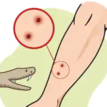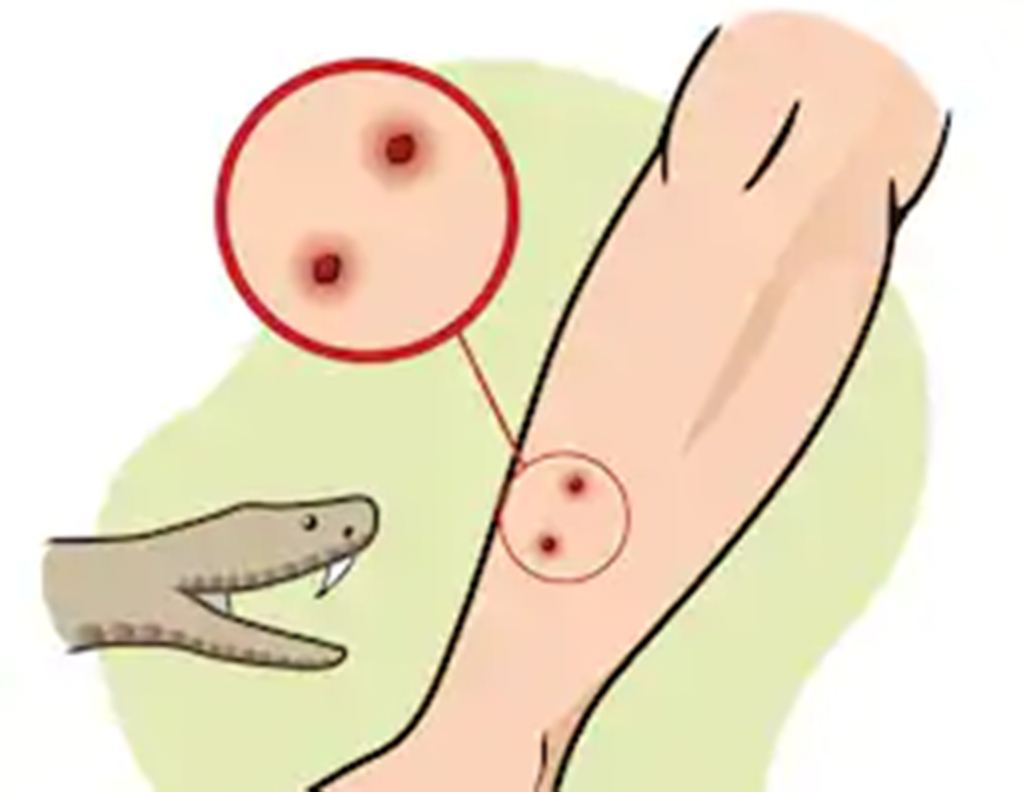

Only 5,000 anti-venom doses available
By Chioma Obinna
No fewer than 10,000 victims of snakebites in Nigeria have no access to treatment even as Neglected Tropical Diseases, NTDs, continue to struggle for attention in the country. Every year, a total of 15,000 snakebite cases are reported in Nigeria but only 5,000 victims have access to treatment resulting in a backlog of 10,000.
Disclosing this and other facts during a 2-Day media dialogue in Ibadan, Oyo state, on NTDs, the Deputy Director/ Head, Snakebite Division Envenoming Unit, NTDs, Division, Fatai Oyediran, said despite the enormity of snakebites just 5,000 doses of anti-venom are available annually.
“We report 15,000 snakebites annually but we only procure 5,000 anti-venom doses and that means we have a shortage of 10,000 people left untreated. We are recording a gap of 10,000 annually.
Oyediran disclosed that in 2019 alone, a total of 15,926 admissions were recorded in Nigeria as a result of snake bites while 280 people died out of the cases.
READ ALSO: Kannywood actress, Rahama Sadau debunks arrest, jail report
Oyediran who explained that snake bite was a neglected public problem in the rural communities of Africa and Nigeria in particular, stated that it remains a major medical problem in rural communities of the Savannah Region of West Africa.
Listing some of the affected countries to include Nigeria, Senegal, Ghana, Togo, Benin, Burkina-Faso, Niger, Mali and Cameron, he added that the three most medically important snakes in Nigeria are Naja nigricolis (Cobra), Bitis arietans (Puff Adder) and Echis ocellatus (Carpet Viper) which is the world’s most dangerous snake, causing more deaths than any other snake on the African continent.
He said the estimated incidence of snake bites in Nigeria was put at 174 bites/1000 according to a 1994 Sample Epidemiological survey by the Federal Ministry of Health, FMOH and that the most recent estimated incidence of snakebites in Nigeria was 497/100,000 human/year according to a 2013 epidemiological survey (Habib 2013).
Speaking on the control of snakebite, Oyediran encouraged Nigerians to plant species of plants that repel snakes, discouraged the dumping of refuse near homes, rearing of animals and birds that are known to eat snakes.
He also recommended the need to close -up all unnecessary holes and set traps to suspected holes in and around the house, eliminate snake habitat and hiding places (wood piles, garden debris, cracks and holes) in living houses, keeps rodents (rats and mice) and other household pests which snake prey on under control, erect snake-proof fences 2-3 ft high wire meshes have been found to be effective and the use of snake repellants.
Oyediran also stated that naphthalene (camphor) can be spread around the perimeter of the house and in the event of snake threat, individuals should make noise that can scare off snake.
“Snake bite is an injury caused by a bite from a snake, often resulting in puncture wounds inflicted by the snake’s fangs and sometimes envenomation. The outcome depends on factors which include the species of snake involved, area of the body bitten, amount of venom injected and the health condition of the victim.”
Tackling the problem in Nigeria, he identified inadequate funding and release, low awareness, lack of political will, poor data collection, and inadequate partner’s support, apart from WHO, N-SRIC, UNICEF among others as some of the challenges affecting proper control of the problem.
Throwing light on challenges of transporting victims, he said: “For an instance in Gombe State, most times all beds are occupied by patients of snakebites.”
Lamenting the dangers of snakebite and lack of treatment centres, he explained that distance sometimes affects efforts towards rescuing victims of snakebites. For an instance in Gombe State, most times all beds are occupied by patients of snakebite victims.”
Lamenting the dangers of snakebite and lack of treatment centres, Oyediran, who spoke at the event organised by UNICEF in collaboration with the Federal Ministry of Information, explained that distance sometimes affects efforts towards rescuing victims. “Just like COVID-19, the health status of victims is crucial. I am sure that most of us contracted Covid and survived it, some had it within two days it was gone. Resistance and immunity built against such also play a part. Some people can resist the venom for up to 72 hours but there are other things you can do even without the anti-venom. You can keep giving blood to neutralise the venom.”
He warned that victims of snakebites should avoid the use of a tourniquet to avoid complete shortage of blood supply to the brain.
“The issue of a tourniquet is not right. It is better to use an ordinary handkerchief to allow some blood to flow to the brain. If you tie a tourniquet and blood is not circulating and going to the brain that will kill the victim or induce a coma.
“The brain needs oxygen which is in the blood. That is why we say don’t knot and don’t use your mouth to suck the venom because there have been instances where somebody accidentally swallowed the venom. Don’t put incision or put a black stone, there is no scientific proof that they work.”
Further, Oyediran disclosed that currently, the Division is working with traditional medicine practitioners to harness the various cure claims and subject them to scientific proof even as he lamented the lack of funding.
“We have a lot to do but there is no fund. After the discovery of the anti-venom, there is no substantial funding again for more research of on these claims.
“We had a meeting with the traditional medicine practitioners on harnessing all these local claims of leaves and black stones, garlic and onions and to send to NIPRID, NAFDAC and NIMR for analysis.
We are working to see that all 774 LGAs have a centre where victims can be treated.”
He listed plants that repel snakes to include lemongrass etc.
He debunked beliefs that a person bitten thrice will not survive another snakebite urging that people keep their environment clean, use nets on their windows as well as beam lights in their toilet sinks before using them.
“People should clean and also use camphor in their surroundings. Fumigate every three months with snake repellent or normal chemical. The normal chemical can drive them away but will not kill them. Don’t put remnants of food close to your house because rats will come and the snakes will come to eat the rats. It is the balance of the ecosystem,” he stated.
Vanguard News Nigeria
The post 10,000 snakebite victims lack access to treatment in Nigeria annually appeared first on Vanguard News.




















0 Comments
Advertise your business here at cheap rate and get large audience to your market. Call/Msg Teemikemedia: 07060733664 to get started.